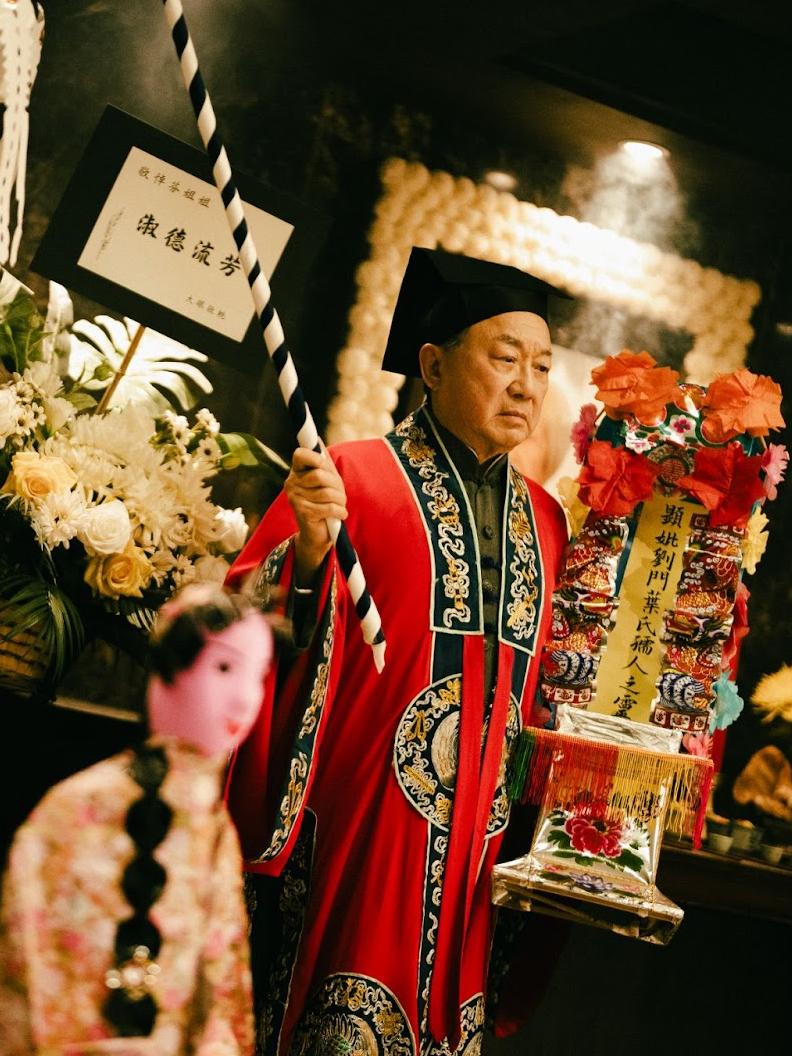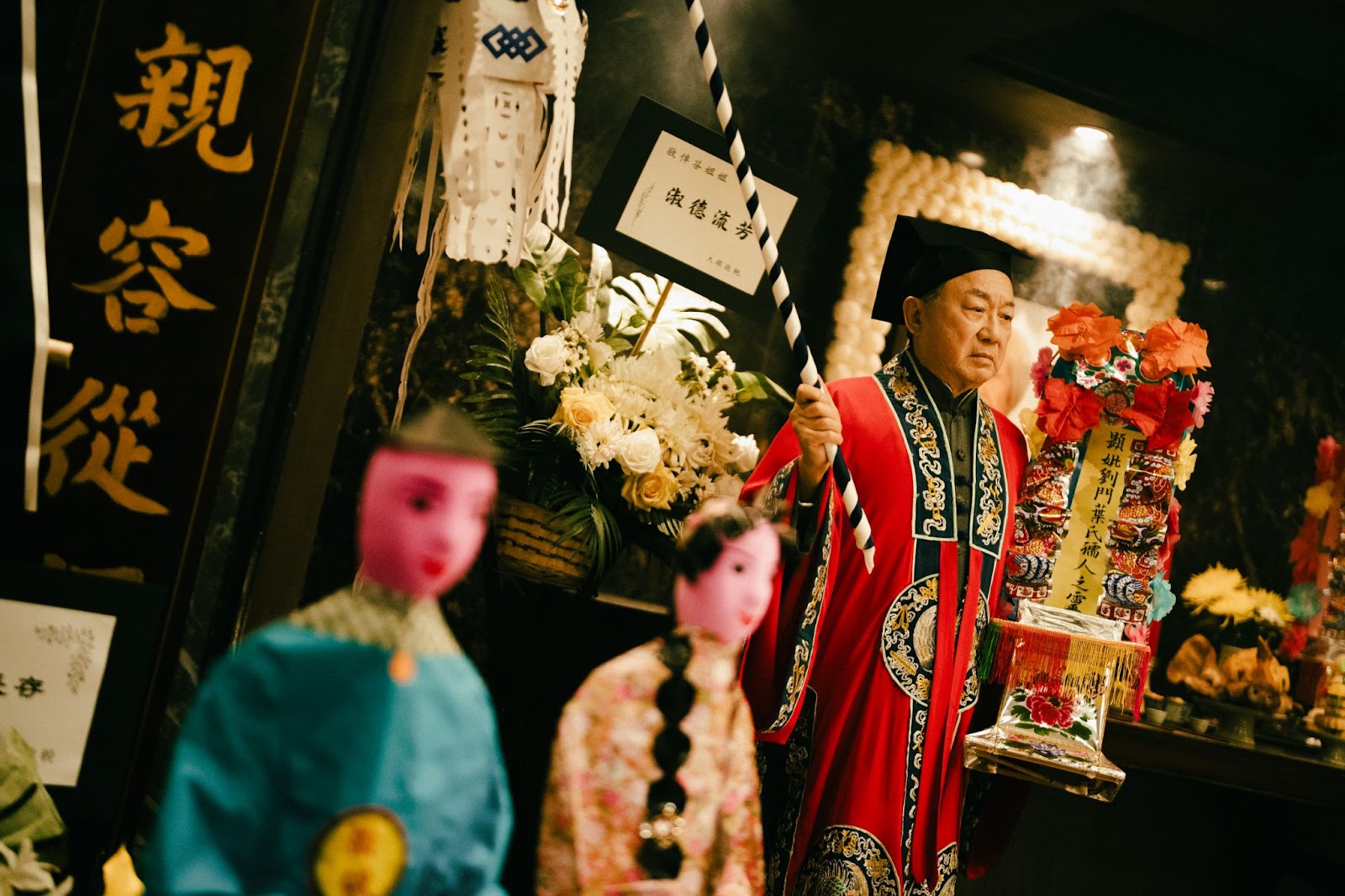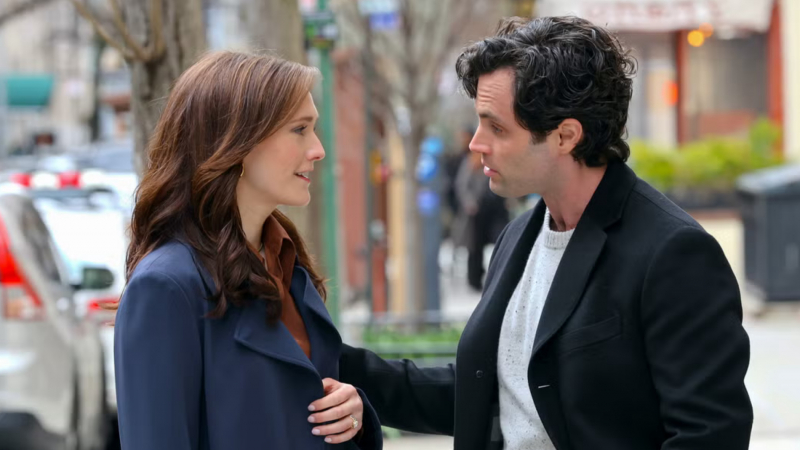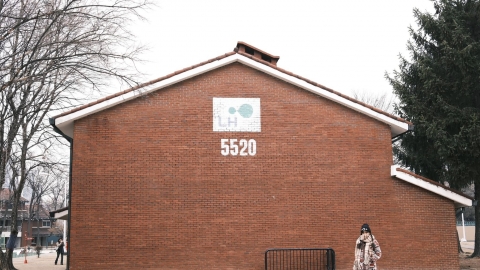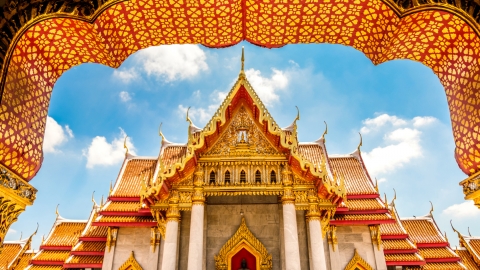"Breaking Hell" is not just an entertaining film; it's a cinematic work that touches the hearts of viewers with its simple yet profound portrayal of everyday life. The film realistically depicts the struggles of ordinary people in society. Everyone works hard to make a living, but at the same time, they are willing to help each other, creating a united and loving community.
The film conveys a message about changing outdated beliefs, emphasizing that alleviating the pain of those left behind is just as important as sending souls to the afterlife.
The new golden age of Hong Kong cinema.
The character Dao Sanh (played by Huang Zi Hua) works as a wedding planner but his business falls apart due to the impact of the Covid-19 pandemic. Reluctantly, he switches to providing funeral services. Jokingly, he says, "If you can't make a living from the living, then turning to the dead is only natural."
Dao Sanh was introduced to and learned from Master Wen (played by Xu Guanwen) - a meticulous and principled funeral Taoist priest - the rituals ranging from corpse hygiene to the spiritual practice of "Breaking Hell," which, according to folklore, aims to help the deceased transcend to the celestial realm.
Taoist Master Wen has only one son, Guo Bin (played by Chu Pak-hong), and one daughter, Wen Yue (played by Michelle Wai). However, because Bin married a Catholic woman, his father did not approve of him officially inheriting the family business. Meanwhile, Tao Sheng sought Bin's help to become more skilled in funeral rites.
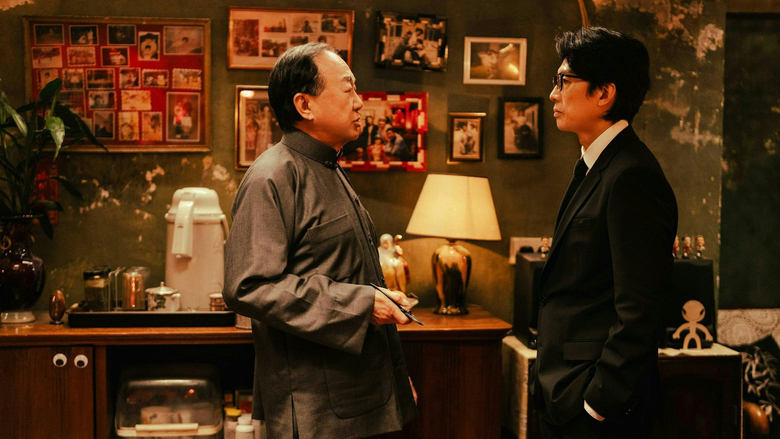
The film uses death to tell the story of those who are still alive.
The dramatic and emotional climax comes at the end of the film, when Master Wen, old and frail, passes away. Dao Sheng dares to suggest that his two children, Bin and Wen Yue, directly perform the "Breaking Hell" ritual for their father. This is met with fierce opposition from other Taoist priests as well as many funeral attendees who are prejudiced against women and have never accepted the idea of women being allowed to perform the "Breaking Hell" ritual for the deceased.
Van Nguyet was a woman of few words, yet she was the one who accompanied the ambulances transporting patients to the hospital. She fulfilled her mission of saving lives with dedication, but rarely received the appreciation of her strict father, simply because she was the woman. Only after Mr. Van's death did she truly understand her father's love for her and realize that her name meant "treasure" to him.
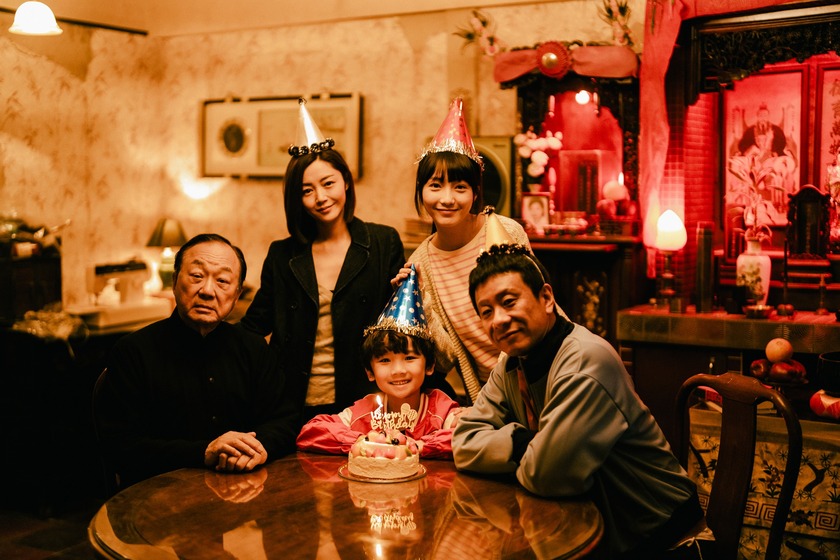
All of this is to portray a modern-day Hong Kong, where the most prominent voices are those of intense generational conflict and the silent, yet devastating, changes taking place.
From initially entering the funeral business simply to earn money, Dao Sanh gradually changed his mindset for the better. He became more dedicated to his work, embodying the principle of "filial piety is the ultimate duty," sharing the grief with bereaved families, and willingly assisting the bereaved and the deceased in the most appropriate way, even if it sometimes meant deviating from established customs and principles.
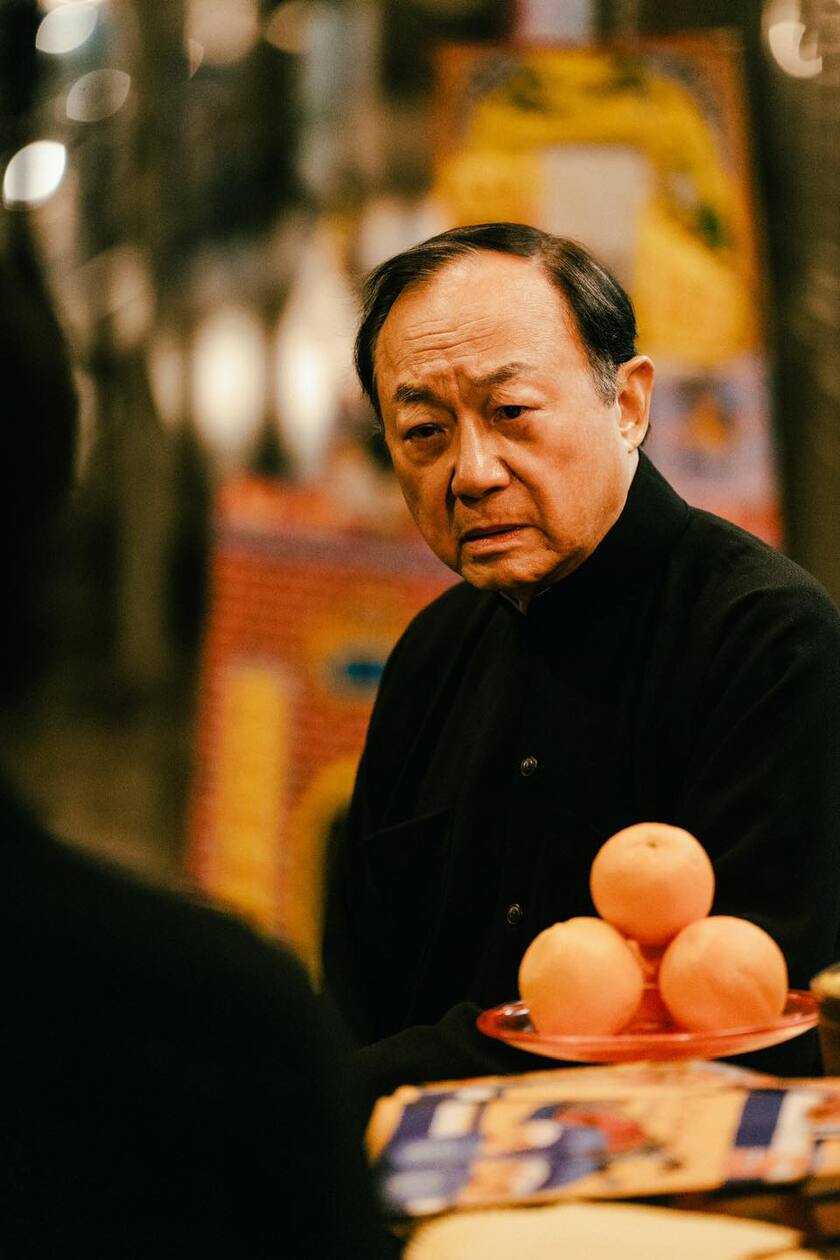
In an unstable economy, only death is certain.
In a particularly poignant work environment, steeped in the tears of those who have passed away and those who remain in this world, Dao Sanh realized that outdated mystical customs needed to be changed in a way that would both preserve traditional beliefs and culture while remaining balanced and flexible to suit the times. Otherwise, these mystical rituals would merely be superstition rather than meaningful respect and remembrance of the deceased.
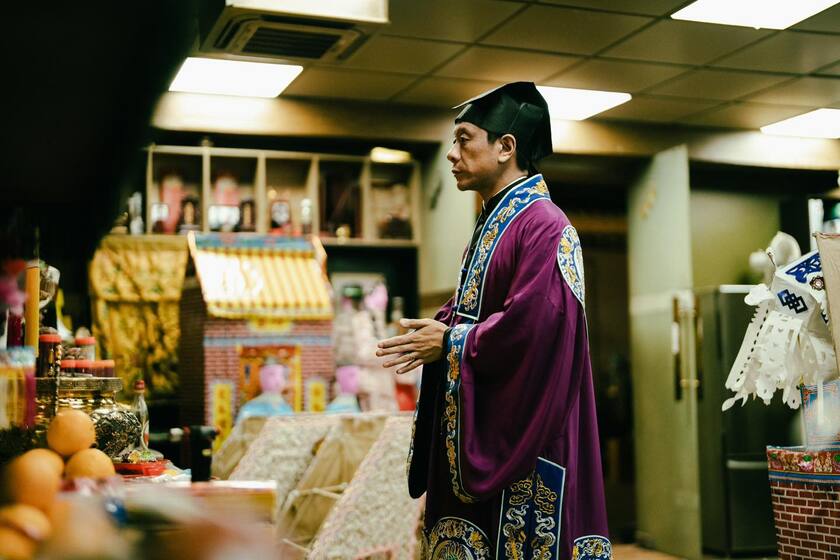
Breaking Hell then leads viewers into the funerals, deaths, and beliefs of the people in this place.
A poignant story about life.
Exploiting the most unique elements of Hong Kong cinema, director Anselm Chan leaves viewers with something to ponder about the natural cycle of birth, aging, illness, and death. The film begins slowly, telling the stories of different destinies, thereby reflecting a multifaceted perspective on pressing issues in modern life such as gender inequality, male pressure, love, and family relationships. In the latter half of the film, powerful scenes emerge one after another, like a blazing fire at the end of each ritualistic escape from prison.
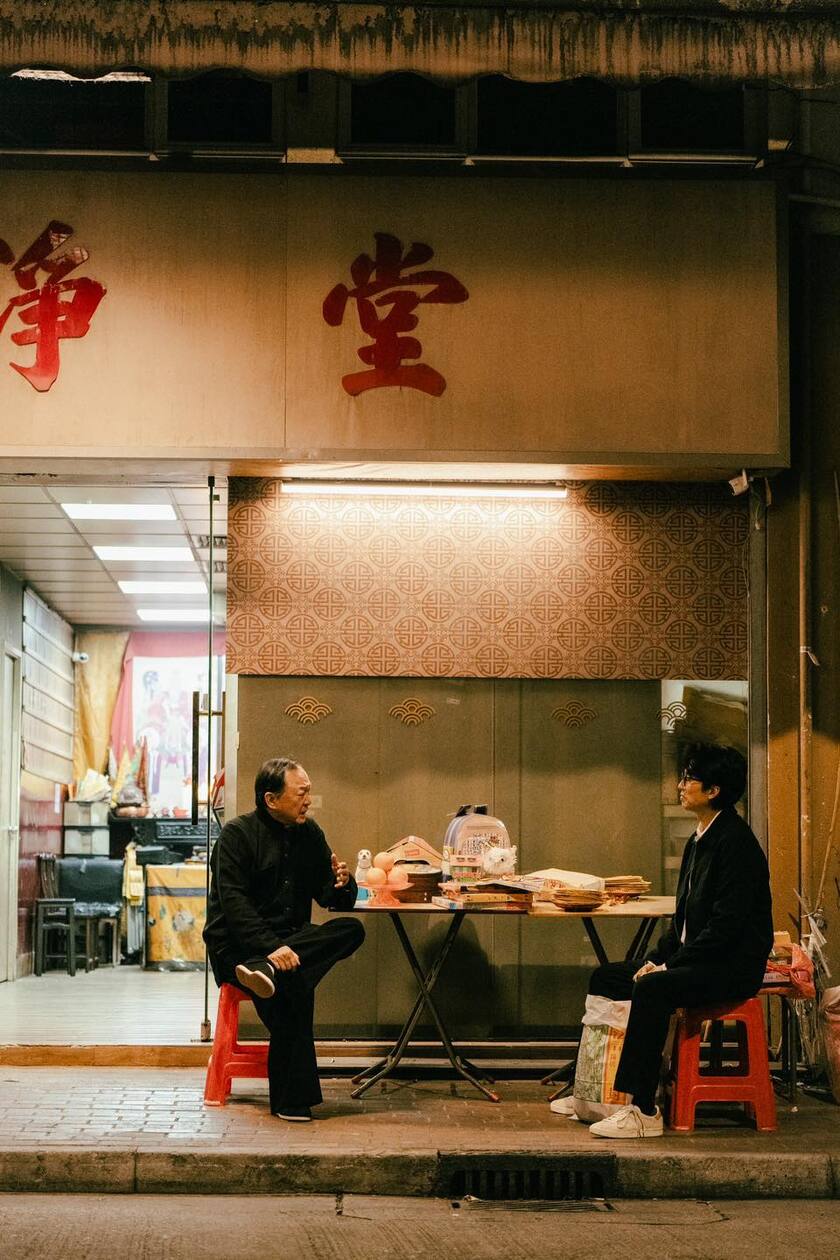
The film conveys the message: enjoy life with tolerance and optimism because life and death are unpredictable, and no one knows what tomorrow will bring.
"The dead are destined for the dead," that's an unchangeable truth. But what about "the living"? They must continue to live, to face the difficulties and challenges of life. "Breaking Through Hell" conveys a powerful message about unwavering will, optimism, and the human desire for a beautiful life.
As Dao Sanh himself says at the end of the film: "On the bus of life, let's live happily because it's not easy to visit this world. Instead of worrying, let's enjoy and live a colorful life." Life is a journey full of challenges, but also full of beautiful things. Instead of worrying and being afraid, let's enjoy every moment, live life to the fullest for our passions and dreams.
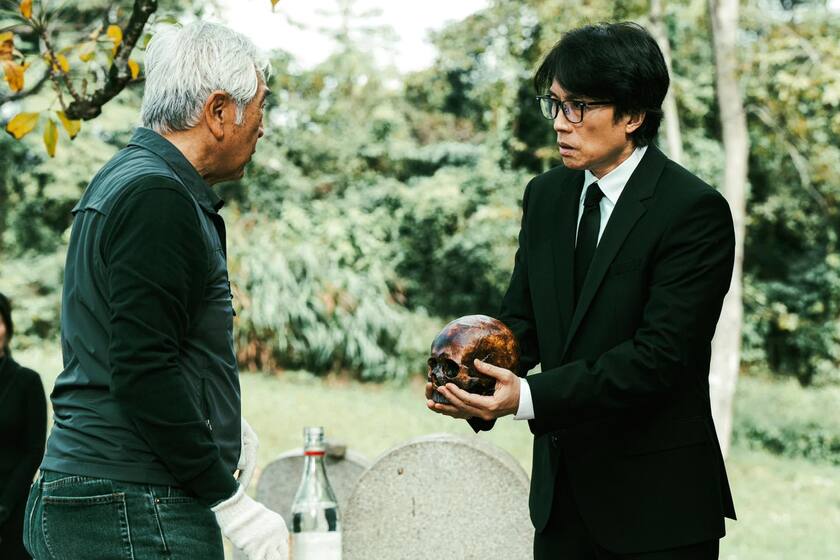
Although the film mostly revolves around funerals, steeped in the sorrow of countless lives, a glimmer of hope still shines at the end when the father-son and teacher-student relationships overcome adversity to radiate light.
Each of us is a "treasure"—as the Taoist master Wen named his daughter Wen Yue. Each person has their own unique value and role in this life. Cherish yourself, love those around you, and live a meaningful and memorable life.
Beyond the lighthearted and charming humor characteristic of TVB, the series also features a collection of deeply moving and multi-layered stories that easily bring viewers to tears. With its distinctive cultural elements and impressive performances from veteran Hong Kong actors such as Hui Kwan-man, Wong Chi-wah, and Wai Si-ya, "Breaking Hell" is not just entertainment but also a touching journey about life, death, and faith.
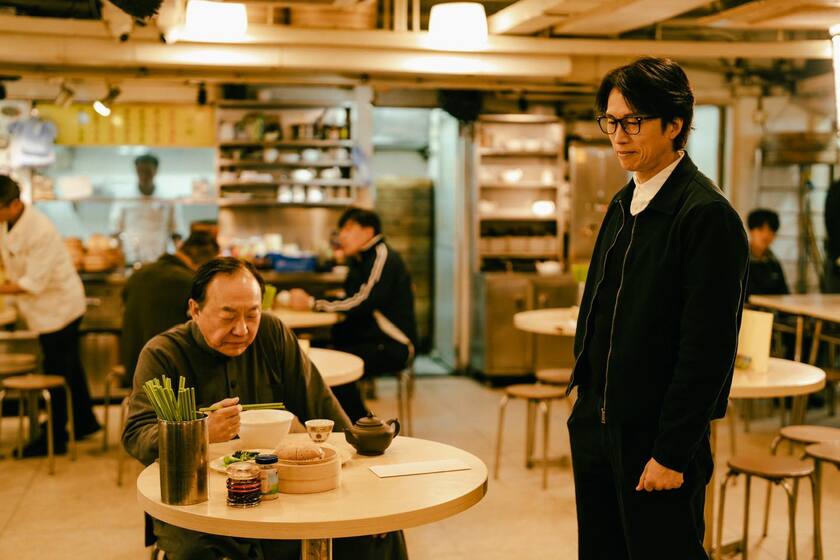
Breaking Hell is not just entertainment, but also a moving journey about life, death, and faith.
"Breaking Hell" is not just an entertaining film; it's a work of art imbued with humanistic spirit, reflecting social issues and the anxieties of people in modern life. The film has touched the hearts of millions of viewers, making them reflect on the meaning of life, the value of human relationships, and the yearning for freedom.
The success of "Breaking the Hell" is not only a source of pride for Hong Kong cinema but also a great inspiration for young filmmakers. It shows that with talent, passion, and creativity, we can create truly valuable cinematic works that capture the hearts of audiences and make history.

 VI
VI EN
EN



